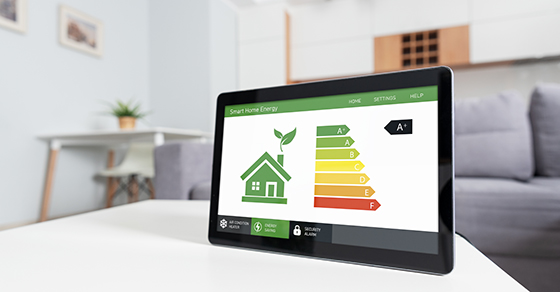Many individuals may have a desire to make their home more energy efficient, either to help the planet or their wallets. The Inflation Reduction Act of 2022 may have given another incentive to making your home more energy efficient.
Ask your Rudler advisor as you may be able to help offset the initial cost of the upgrade with an enhanced residential energy tax credit.

Eligibility rules
If you make eligible energy-efficient improvements to your home on or after January 1, 2023, you may qualify for a tax credit up to $3,200. You can claim the credit for improvements made through 2032.
The credit equals 30% of certain qualified expenses for energy improvements to a home located in the United States, including:
- Qualified energy-efficient improvements installed during the year,
- Residential “energy property” expenses, and
- Home energy audits.
There are limits on the allowable annual credit and on the amount of credit for certain types of expenses.
The maximum credit you can claim each year is:
- $1,200 for energy property costs and certain energy-efficient home improvements, with limits on doors ($250 per door and $500 total), windows ($600 total) and home energy audits ($150), as well as
- $2,000 per year for qualified heat pumps, biomass stoves or biomass boilers.
In addition to windows and doors, other energy property includes central air conditioners and hot water heaters.
Before the 2022 law was enacted, there was a $500 lifetime credit limit. Now, the credit has no lifetime dollar limit. You can claim the maximum annual amount every year that you make eligible improvements until 2033. For example, you can make some improvements this year and take a $1,200 credit for 2023 — and then make more improvements next year and claim another $1,200 credit for 2024.
The credit is claimed in the year in which the installation is completed.
Other limits and rules
In general, the credit is available for your main home, although certain improvements made to second homes may qualify. If a property is used exclusively for business, you can’t claim the credit. If your home is used partly for business, the credit amount varies. For business use up to 20%, you can claim a full credit. But if you use more than 20% of your home for business, you only get a partial credit.
Although the credit is available for certain water heating equipment, you can’t claim it for equipment that’s used to heat a swimming pool or hot tub.
The credit is nonrefundable. That means you can’t get back more on the credit than you owe in taxes. You can’t apply any excess credit to future tax years. However, there’s no phaseout based on your income, so even high-income taxpayers can claim the credit.
Collecting green for going green
Contact your Rudler, PSC advisor at 859-331-1717 for help ensuring you get the maximum tax savings for your expenditures, as well as other potential tax breaks.
RUDLER, PSC CPAs and Business Advisors
This week's Rudler Review is presented by Becca Thorman, CPA, CVA and Evan Kandra, CPA.
If you would like to discuss your particular situation, contact Becca or Evan at 859-331-1717.


As part of Rudler, PSC's commitment to true proactive client partnerships, we have encouraged our professionals to specialize in their areas of interest, providing clients with specialized knowledge and strategic relationships. Be sure to receive future Rudler Reviews for advice from our experts, sign up today !